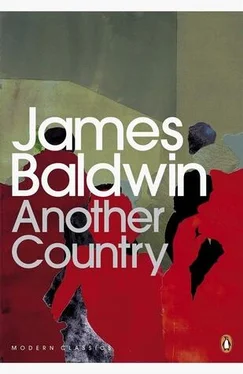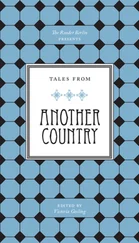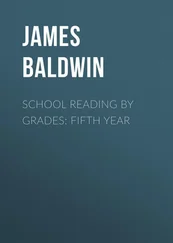James Baldwin - Another Country
Здесь есть возможность читать онлайн «James Baldwin - Another Country» весь текст электронной книги совершенно бесплатно (целиком полную версию без сокращений). В некоторых случаях можно слушать аудио, скачать через торрент в формате fb2 и присутствует краткое содержание. Год выпуска: 2001, Издательство: Penguin Books, Жанр: Современная проза, на английском языке. Описание произведения, (предисловие) а так же отзывы посетителей доступны на портале библиотеки ЛибКат.
- Название:Another Country
- Автор:
- Издательство:Penguin Books
- Жанр:
- Год:2001
- ISBN:нет данных
- Рейтинг книги:3 / 5. Голосов: 1
-
Избранное:Добавить в избранное
- Отзывы:
-
Ваша оценка:
- 60
- 1
- 2
- 3
- 4
- 5
Another Country: краткое содержание, описание и аннотация
Предлагаем к чтению аннотацию, описание, краткое содержание или предисловие (зависит от того, что написал сам автор книги «Another Country»). Если вы не нашли необходимую информацию о книге — напишите в комментариях, мы постараемся отыскать её.
is a novel of passions — sexual, racial, political, artistic — that is stunning for its emotional intensity and haunting sensuality, depicting men and women, blacks and whites, stripped of their masks of gender and race by love and hatred at the most elemental and sublime. In a small set of friends, Baldwin imbues the best and worst intentions of liberal America in the early 1970s.
Another Country — читать онлайн бесплатно полную книгу (весь текст) целиком
Ниже представлен текст книги, разбитый по страницам. Система сохранения места последней прочитанной страницы, позволяет с удобством читать онлайн бесплатно книгу «Another Country», без необходимости каждый раз заново искать на чём Вы остановились. Поставьте закладку, и сможете в любой момент перейти на страницу, на которой закончили чтение.
Интервал:
Закладка:
Yves shifted and sat up and lit a cigarette, then lit one for Eric. “I am beginning to be quite hungry.”
“So am I. But we’ll be eating soon.” The kitten wandered in and leapt into Eric’s lap. He stroked it with one hand. “Do you remember how we met?”
“I will never forget it. I owe a great deal to Beethoven.”
Eric smiled. “ And to the wonders of modern science.”
He had been walking along the Rue des St. Pères on a spring evening, and his thoughts had not been pretty. Paris seemed, and had seemed for a long time, the loneliest city under heaven. And whoever prolongs his sojourn in that city — who tries, that is, to make a home there — is doomed to discover that there is no one to be blamed for whatever happens to him. Contrary to its legend, Paris does not offer many distractions; or, those distractions that it offers are like French pastry, vivid and insubstantial, sweet on the tongue and sour in the belly. Then the discontented wanderer is thrown back on himself — if his life is to become bearable, only he can make it so. And, on that spring evening, walking up the long, dark, murmuring street toward the Boulevard, Eric was in despair. He knew that he had a life to make, but he did not seem to have the tools.
Then, as he neared the Boulevard, he heard music. At first, he thought it came from the houses, but then he realized that it was coming from the shadows across the street, where there were no houses. He stood still and listened; to Beethoven’s “Emperor” Concerto, which was moving away from him. Then, out of the shadows, ahead of him, and on the other side of the street, he saw the long, lean figure of a boy. He stood on the corner, waiting for the lights to change, and Eric saw that he was carrying a small portable radio, holding it with both hands. Eric walked to the corner, the lights changed, the boy crossed the street, and Eric followed. Down the long, dark street, the boy on one side and he on the other, and with the violence of the music, which was like the violence in his heart, filling the soft, spring air.
They reached the corner of the Rue de Rennes. The concerto was approaching its end. To the right, far from them, squatted the bulk of the Gare Montparnasse; to the left, and somewhat nearer, were the cafés and the Boulevard, and the clean, gray spire of St. Germain-des-Près.
The boy hesitated on the corner; looked over, briefly, and his eyes met Eric’s. He turned in the direction of St. Germain-des-Près. Eric crossed the street. Tum-to-tum tum-ta-tum, tum-ta-tum, tum-to-tum! went the music.
“Hello,” Eric said. “I’m afraid I’ve got to hear the end of that concerto.”
Yves turned and Eric was immediately struck by his eyes. In the candor with which they regarded him, they were like the eyes of a child; and yet there was also something in that scrutiny which was not childish at all. Eric felt his heart pound once, hard, against his chest. Then Yves smiled.
“It is almost ended,” he said.
“I know.” They walked in silence, listening to the end of the concerto. When it ended, Yves clicked the radio off.
“Will you have a drink with me?” Eric asked. He said, quickly, “I’m all by myself, I’ve got no one to talk to — and — and you don’t run into people playing Beethoven every day.”
“That is true,” said Yves, with a smile. “You have a funny accent, where are you from?”
“America.”
“I thought it must be America. But which section you are from?”
“The South. Alabama.”
“Oh,” said Yves, and looked at him with interest, “then you are raciste .”
“Why, no,” said Eric, feeling rather stunned, “we are not all like that.”
“Oh,” said Yves, majestically, “I read your newspapers. And I have many African friends and I have noticed that Americans do not like that.”
“Well,” said Eric, “that’s not my problem. I left Alabama as fast as I could and if I ever go back there, they’ll probably kill me.”
“Have you been here long?”
“About a year.”
“And you still know no one? ”
“It’s hard to make friends with the French.”
“Well. It is only that we are more réservé than you.”
“I’ll say you are.” They stopped before the Royal St. Germain. “Shall we have a drink here?”
“It does not matter.” Yves looked over the tables, which were full; looked through the glass walls into the bar, which was crowded, mostly with young males. “But it is terribly crowded.”
“Let’s go someplace else.”
They walked to the corner and crossed the street. All of the cafés were full. They crossed the street again, and passed the Brasserie Lipp. Eric had been watching Yves with more intensity than he realized; as they passed the brasserie, it suddenly flashed through him that Yves was hungry. He did not know how he knew it, for Yves said nothing, did not pause or sigh; and yet Eric could not have been more certain that the boy was faint with hunger had he abruptly collapsed on the sidewalk.
“Look,” Eric said, “I’ve got an idea. I’m starving, I haven’t eaten any supper. Come on over to Les Halles with me and let’s get something to eat. And by the time we get back, it won’t be so crowded over here.” Yves looked at him, his head tilted in a kind of wary, waiting surprise.
“It is so far,” he murmured. And he stared at Eric with a bright, suspicious bafflement; as though he were thinking, I am willing to play all games, my friend, but what are the rules of this one? and what are the penalties?
“I’ll bring you back.” He grinned and grabbed Yves’ arm and started for the taxi stand. “Come on, be my guest, you’ll be doing me a favor. What’s your name?”
“ Je m’appel Yves. ”
“My name is Eric.”
He had often thought since that, had it not been for that sudden apprehension before the brasserie, he and Yves would never have met again. Their first meal together had given them time, so to speak, to circle around one another. Eric did most of the talking; the burden of proof was on him. And Yves became less wary and less tight. Eric chattered on, delighted by Yves’ changing face, waiting for his smile, waiting for his laugh. He wanted Yves to know that he was not trying to strike with him the common, brutal bargain; was not buying him a dinner in order to throw him into bed. And by and by this unspoken declaration caused Yves to nod gravely, as though he were turning it over in his mind. There also appeared in his face a certain fear. It was this fear which Eric sometimes despaired of conquering, in Yves, or in himself. It was the fear of making a total commitment, a vow: it was the fear of being loved.
That day in Chartres they had passed through town and watched women kneeling at the edge of the water, pounding clothes against a flat, wooden board. Yves had watched them for a long time. They had wandered up and down the old crooked streets, in the hot sun; Eric remembered a lizard darting across a wall; and everywhere the cathedral pursued them. It is impossible to be in that town and not be in the shadow of those great towers; impossible to find oneself on those plains and not be troubled by that cruel and elegant, dogmatic and pagan presence. The town was full of tourists, with their cameras, their three-quarter coats, bright flowered dresses and shirts, their children, college insignia, Panama hats, sharp, nasal cries, and automobiles crawling like monstrous gleaming bugs over the laming, cobblestoned streets. Tourist buses, from Holland, from Denmark, from Germany, stood in the square before the cathedral. Tow-haired boys and girls, earnest, carrying knapsacks, wearing khaki-colored shorts, with heavy buttocks and thighs, wandered dully through the town. American soldiers, some in uniform, some in civilian clothes, leaned over bridges, entered bistros in strident, uneasy, smiling packs, circled displays of colored post cards, and picked up meretricious mementos, of a sacred character. All of the beauty of the town, all the energy of the plains, and all the power and dignity of the people seemed to have been sucked out of them by the cathedral. It was as though the cathedral demanded, and received, a perpetual, living sacrifice. It towered over the town, more like an affliction than a blessing, and made everything seem, by comparison with itself, wretched and makeshift indeed. The houses in which the people lived did not suggest shelter, or safety. The great shadow which lay over them revealed them as mere doomed bits of wood and mineral, set down in the path of a hurricane which, presently, would blow them into eternity. And this shadow lay heavy on the people, too. They seemed stunted and misshapen; the only color in their faces suggested too much bad wine and too little sun; even the children seemed to have been hatched in a cellar. It was a town like some towns in the American South, frozen in its history as Lot’s wife was trapped in salt, and doomed, therefore, as its history, that overwhelming, omnipresent gift of God, could not be questioned, to be the property of the gray, unquestioning mediocre.
Читать дальшеИнтервал:
Закладка:
Похожие книги на «Another Country»
Представляем Вашему вниманию похожие книги на «Another Country» списком для выбора. Мы отобрали схожую по названию и смыслу литературу в надежде предоставить читателям больше вариантов отыскать новые, интересные, ещё непрочитанные произведения.
Обсуждение, отзывы о книге «Another Country» и просто собственные мнения читателей. Оставьте ваши комментарии, напишите, что Вы думаете о произведении, его смысле или главных героях. Укажите что конкретно понравилось, а что нет, и почему Вы так считаете.












